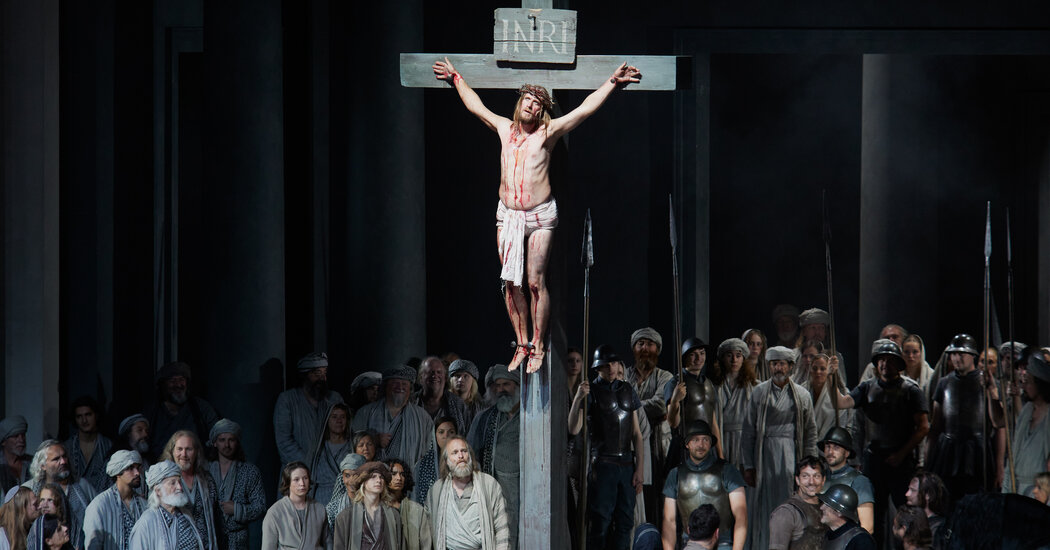OBERAMMERGAU, Germany — This is a town of wild-haired men. Their locks are scruffy, scraggly; tousled for the boys, and wispy for those whose boyhoods were long ago. There are beards, too, sported by those old enough to grow facial hair — generally ungroomed, and bushy.
Once per decade, in fulfillment of a vow they made in 1633 and have honored ever since, the townspeople here collectively re-enact the story of Jesus’s suffering and death, and in an effort to look more like the people they are portraying, on Ash Wednesday the year before the Passion Play, hundreds and hundreds of villagers cease cutting their hair.
That’s why Christian Stückl, the Passion Play’s longtime director and relentless reformer, knew something was up on the day he noticed a short-haired boy peering at rehearsals from the doorway of a nearby garage. The memory is vivid, even though it was two decades ago. “You’re not participating?” Stückl asked.
“No,” the boy explained. “We’re Muslim.”
The boy’s name was Abdullah Kenan Karaca, and after Stückl promised his parents there would be no efforts at evangelism, the 11-year-old joined the town’s other children in one of the play’s massive crowd scenes.
That early exposure to theater was life-altering for Karaca, who is now 33 and a freelance director. It was also one of many steps in a little-by-little evolution of the show, which had a long history of restrictive casting rules, but this year, for the first time, has two Muslims in principal roles: Cengiz Görür, 22, who stars as Judas, and who thought he might try selling cars until Stückl persuaded him to go to acting school, and Karaca, who plays Nicodemus, a follower of Jesus, and serves as the production’s deputy director. Both men grew up in Oberammergau and are sons of Turkish immigrants.
“I know my family doesn’t go back to the beginning of the vow, but still,” Karaca said. “It’s my tradition too.”
The Passion Play, staged 42 times since 1634, this year opened in May, delayed two years by the coronavirus pandemic, and runs through Oct. 2. Renowned for its scale as well as its constancy, it has a current cast of 1,400 adults and 400 children, or about one-third of the town’s 5,400 residents; an onstage menagerie that includes a donkey for Jesus’s entry into Jerusalem, and horses, camels, sheep, goats, chickens and homing pigeons.
Presented on an open-air stage at the front of a 4,384-seat covered theater, it draws a sizable…
Click Here to Read the Full Original Article at NYT > Travel…
